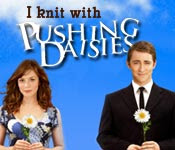I finished reading the historical non fiction book/micro-history,The Professor and the Madman: A Tale of Murder, Insanity, and the Making of the Oxford English Dictionary by Simon Winchester. I really liked it. Our library system had a non fiction book club read it a couple of months ago.
A historical non-fiction is a book that reads almost like fiction. A micro-history is a book which focuses on one small part of history. The part can either be an item or a time period. Seabiscuit is a wonderful example. It focused on horse racing during the Depression and really made that time-period come alive.
The Professor and the Madman focused on two men who were strongly involved in the editing of the OED: James Murray (the professor) and Dr. William Chester Minor (the madman). The vast undertaking of creating the OED simply amazed me. Before 1857 (when the idea was first suggested), there was no all-encompassing English dictionary. Or at least, not a dictionary like we think of today. The OED editors set out to catalog, define, provide illustrative quotations, and track the word's history through written history from its first use until the current day. Every. Single. Word. Wow.
They had thousands of volunteers read through books, write down words (any words), illustrative quotations, where the quotation was found, page number, and send in the slip of paper to the Scriptorium that Murray had set up in Oxford. The Scriptorium might sound impressive but really it was just a corrugated metal structure full of paper. Can you even imagine the scraps of paper everywhere? How would anything ever get done or even found?
Dr. Minor is introduced as a madman from the very beginning of the book. A madman but also an intellectual. He was an American doctor who served in the Civil War. Apparently, his paranoia was sparked and/or became more pronounced after an experience during the Wilderness where he had to brand an Irish soldier as punishment for desertion. After that, he felt that the Irish everywhere were after him in revenge. He also complained of being followed and being forced to perform "lewd acts" every night by persons unknown. A while after the end of the war, Minor left America for England. He was imprisoned in Broadmore, a lunatic asylum there, when he murdered a man in London. (Minor thought the man was going to attack him.)
While in Broadmore, Minor had an extraordinary amount of special privileges. He had a pention from the U.S. Army and was a doctor like those taking care of him so Minor was housed in the nice part of Broadmore. He had the use of two rooms, one of which served as a library and the other which was his bedroom, where he painted and played his flute. The library was quite impressive because he collected rare works and anything else that caught his interest. Minor hired one of the other inmates to clean his rooms and perform small tasks. Sounds pretty nice, huh? He still had the slight problem of thinking people were breaking into his room at night and poisoning him or forcing him to perform those lewd acts.
Ten years after he was first imprisoned, Minor came across Murray's plea for volunteer readers. He wrote to Murray offering his services and got down to reading. Minor's approach to the task was completely different than that of the other volunteers. He would read a book through writing down each word that caught his attention and page number where it was found. He wrote the words down so that they would be in alphabetical order, leaving space for words he would find as he read. Once he finished one book, Minor would go on to the next. Because he wasn't sending in submissions to the editors in Oxford, they thought he had gotten bored with the project.
Once Minor thought he had come up with enough words, he wrote to Murray asking him if they were having any difficulty with any word. When Murray responded that "art" was vexing them, Minor immediately responded with quotation, volume number, and page number. After that, Murray and his workers would send any word "problems" to Minor and he would immediately respond with a correct response. Because Minor had his word lists minutely indexed, it took him no time at all to find a correct quotation. As the author says, other volunteers might have sent in more quotations but Minor's were worth their weight in gold. The editors knew they didn't need to double-check his work.
It was very interesting to watch the friendship between Minor and Murray develop. They corresponded for years and Murray visited Minor frequently in Broadmore. I also found it fascinating to learn more about the editing of the massive dictionary.
The only problem I had with the book was that the author, Simon Winchester, did not have a bibliography in the back of the book. True, he mentioned other books people could read to learn more and talked about some of the books he read. But, to a historian like me, that is not good enough. I want to see all of the documents he used. The letters, the journals, the books, the interviews. Everything. Still, I greatly enjoyed the work and would highly recommend it.
Tuesday, February 06, 2007
Subscribe to:
Post Comments (Atom)









No comments:
Post a Comment